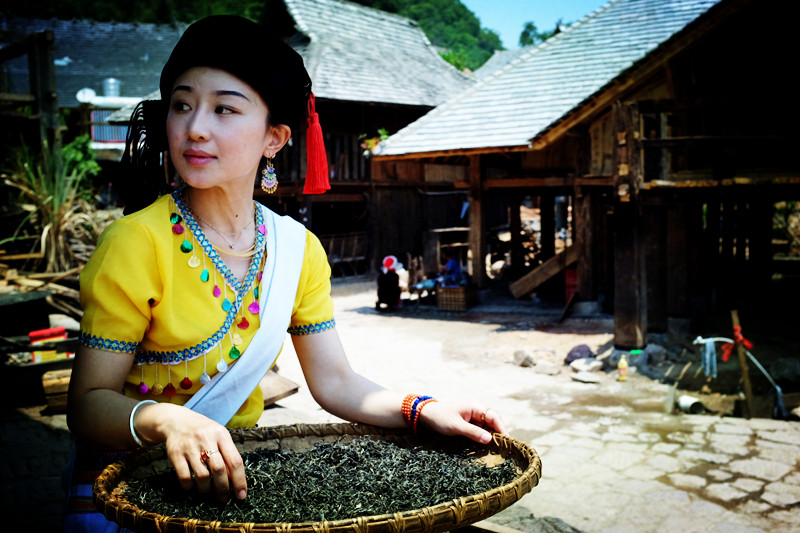Puer Economy
Puer, or Pu’er, is a prefecture-level city in Yunnan Province, China, renowned for its tea production, diverse ethnic cultures, and unique economic characteristics. Here’s an overview of the Puer economy:
Tea Industry
- Pu’er Tea Production
- Puer is globally famous for its production of Pu’er tea, a type of fermented tea highly valued for its health benefits and rich flavor.
- Tea plantations in Puer cover vast areas, with both large-scale plantations and small family-owned tea gardens contributing to production.
- The tea industry supports a significant portion of the local economy, providing employment and income to farmers, tea processors, and traders.
- Tea Processing and Trade
- Puer serves as a major trading center for Pu’er tea, facilitating both domestic distribution and international export.
- Tea processing factories in Puer prepare raw tea leaves into various forms, including loose leaf tea, cakes, bricks, and tuocha (compressed tea).
- Tea auctions and markets attract buyers from across China and beyond, enhancing the city’s economic activity.
Agriculture
- Other Agricultural Products
- Besides tea, Puer cultivates a variety of agricultural products such as tobacco, sugar cane, fruits (like pomelo and oranges), and vegetables.
- Agriculture remains a vital component of the local economy, providing livelihoods to many rural residents.
Jingmai Ancient Tea Mountain in Lancang County, Puer
Tourism
- Cultural and Ecotourism
- Puer’s natural landscapes, including mountains, rivers, and ethnic minority villages, attract tourists interested in ecotourism and cultural experiences.
- Tourists visit tea plantations to learn about Pu’er tea production and explore ethnic villages to experience local customs, festivals, and handicrafts.
- The Ancient Tea Horse Road and sites like Jingmai Mountain contribute to Puer’s appeal as a historical and cultural tourism destination.
Infrastructure and Development
- Transportation and Connectivity
- Puer has invested in improving transportation infrastructure, including roads and airports, to enhance connectivity within the city and with other regions.
- Better infrastructure supports economic development, facilitates tourism growth, and enables efficient transportation of agricultural products.
Challenges and Conservation
- Environmental Conservation
- Sustainable agriculture practices and environmental conservation efforts are critical to preserve Puer’s natural resources and biodiversity.
- Efforts focus on reducing environmental impact from agriculture, tea production, and tourism activities.
- Cultural Preservation
- Puer promotes the preservation and promotion of its diverse ethnic cultures, including the traditions, languages, and customs of ethnic minorities.
- Cultural tourism initiatives aim to benefit local communities while safeguarding cultural heritage and promoting intercultural understanding.
Economic Development Initiatives
- Poverty Alleviation
- Puer participates in national poverty alleviation programs aimed at improving living standards, education, healthcare, and infrastructure in rural areas.
- Economic development policies focus on creating sustainable livelihoods and reducing income disparities among different communities.
In summary, Puer’s economy is anchored by its tea industry, with Pu’er tea being its most famous product. The city also benefits from agriculture, tourism, and efforts to preserve cultural heritage. With ongoing infrastructure improvements and sustainable development practices, Puer continues to position itself as a key player in Yunnan Province’s economic landscape.

 7 Days GolfingTour
7 Days GolfingTour
 8 Days Group Tour
8 Days Group Tour
 8 Days Yunnan Tour
8 Days Yunnan Tour
 7 Days Shangri La Hiking
7 Days Shangri La Hiking
 11 Days Yunnan Tour
11 Days Yunnan Tour
 6 Days Yuanyang Terraces
6 Days Yuanyang Terraces
 11 Days Yunnan Tour
11 Days Yunnan Tour
 8 Days South Yunnan
8 Days South Yunnan
 7 Days Tea Tour
7 Days Tea Tour
 8 Days Muslim Tour
8 Days Muslim Tour
 12 Days Self-Driving
12 Days Self-Driving
 4 Days Haba Climbing
4 Days Haba Climbing
 Tiger Leaping Gorge
Tiger Leaping Gorge
 Stone Forest
Stone Forest
 Yunnan-Tibet
Yunnan-Tibet
 Hani Rice Terraces
Hani Rice Terraces
 Kunming
Kunming
 Lijiang
Lijiang
 Shangri-la
Shangri-la
 Dali
Dali
 XishuangBanna
XishuangBanna
 Honghe
Honghe
 Kunming
Kunming
 Lijiang
Lijiang
 Shangri-la
Shangri-la
 Yuanyang Rice Terraces
Yuanyang Rice Terraces
 Nujiang
Nujiang
 XishuangBanna
XishuangBanna
 Spring City Golf
Spring City Golf
 Snow Mountain Golf
Snow Mountain Golf
 Stone Mountain Golf
Stone Mountain Golf















